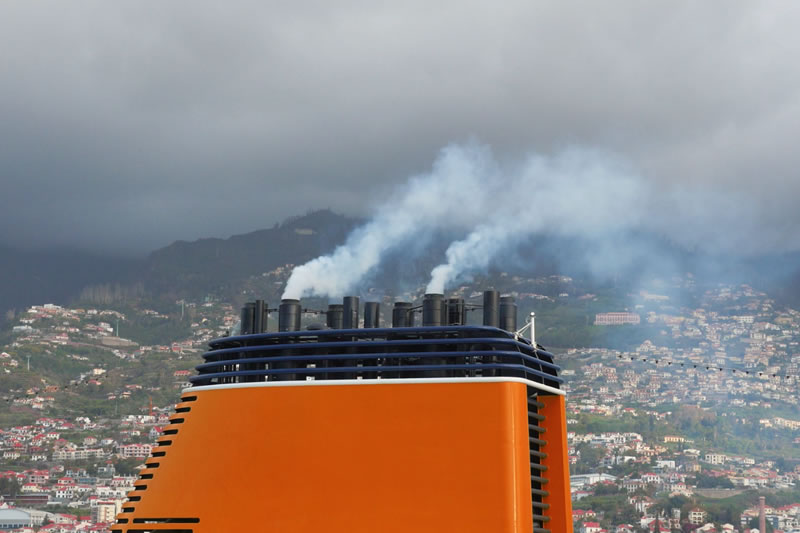Research Reveals Significant Emissions From Ship Scrubbers
10
In just one year, ships using exhaust gas abatement technology, known as scrubbers, released 200 million cubic meters of environmentally and health-hazardous washing water into the Baltic Sea. This unique study, commissioned by the Swedish Transport Agency and the Swedish Agency for Marine and Water Management, investigated the environmental impact of scrubbers in the Baltic Sea compared to other sources of environmental contaminants.

Discharges from ships equipped with scrubbers cause significant damage to the Baltic Sea. A study by Chalmers University of Technology, Sweden, reveals that these emissions have led to pollution with socio-economic costs exceeding EUR 680 million between 2014 and 2022. Despite these costs, shipping companies have recouped their investments in this controversial technology, which "washes" exhaust gases and discharges the resulting water into the sea. Consequently, the industry is profiting billions of euros by running ships on cheap heavy fuel oil instead of cleaner alternatives.
The Baltic Sea is one of the world's most polluted seas. New research from Chalmers University of Technology identifies scrubber discharge water as a relatively unknown environmental culprit. The study found that this discharge is responsible for up to nine percent of certain emissions of carcinogenic and environmentally harmful substances in the Baltic Sea, a figure considerably higher than previously known. Moreover, the number of ships with scrubbers has tripled since the study was conducted.
The researchers, Anna Lunde Hermansson, Erik Ytreberg, and Ida-Maja Hassellöv, have been studying the environmental impact of shipping for many years, contributing their expertise in both international and national contexts. Their work highlights the urgent need for regulatory measures to address the environmental and health hazards posed by scrubber discharges in the Baltic Sea.
Protea’s marine emissions analyser plays an important role in the operation and control of on-board emissions scrubbers. With regulations as laid out in the IMO publication MARPOL Annex VI, control of SO2 emissions from vessels is critical for operators. To reduce emissions, Sea Water Scrubber Flue Gas Desulphurisation (SWS FGD) is operated in both Open Loop and Closed Loop modes.
Protea works closely with scrubber manufacturers and suppliers and partnership with our analyser can give vessel operators the peace of mind that the scrubber is operating effectively. The ability for the emissions analyser to also measure non-scrubbed emissions, under fuel switching operation, give the flexibility of operation for vessels.
With the Protea P2000 marine emissions analyser installed, the reduction of SO2 emissions can clearly be demonstrated, and scrubber operation controlled to ensure efficiency.
#protea #emissions #monitoring #cems #ftir #gas #analysers #shipping #marine #carbon #capture
Other Articles
Carbon Capture Utilisation & Storage (CCUS) In 2026
16
Global Underground CO2 Storage Data Offers Hope Amid Rising Emissions
01
IMO Postpones Adoption Of Global Net-Zero Shipping Framework
04
Pioneering Carbon Capture Projects Ready For Construction
03
Methanol & Ammonia Deemed Ready As Zero-Emission Shipping Fuels
01
Carbon Capture Storage Reaching A Turning Point In Decarbonisation
13
CCS To Capture 15% Of Shipboard Carbon Emissions By 2050
29
Global Shipping Industry Struggles To Navigate Net Zero Transition
21
Carbon Capture Surges as Economics Policy & Industry Demand Align
14
GHG Emissions At Ports On The Rise Despite Initiatives
07